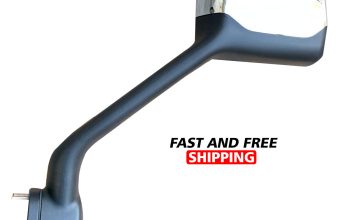Engine oil is the lifeblood of your car. It lubricates moving parts, reduces friction, and helps keep the engine cool. But like any fluid in your car, engine oil can deteriorate or encounter problems. Let’s explore ten common car oil problems and solutions to keep your engine running smoothly. That informative content is created by Cash For Cars Brisbane.
1. Low Oil Level
This is a frequent issue, and the fix is fortunately simple. Regularly check your oil level using the dipstick. If it’s low, consult your owner’s manual for the recommended oil type and add enough to reach the “full” mark on the dipstick. Remember, never overfill!
2. Oil Leaks
Oil leaks can occur due to worn gaskets, loose seals, or cracked components. Leaks are serious as they can lead to engine damage if left unattended. Look for signs like oil stains under your car or on the engine block. If you suspect a leak, take your car to a mechanic for prompt inspection and repair.
3. Dirty Oil
Over time, engine oil accumulates dirt, debris, and contaminants from engine wear. This reduces its lubricating ability and can clog oil passages. The solution? Regular oil changes according to your manufacturer’s recommendations. Typical intervals are between 5,000 and 10,000 kilometers, but consult your manual for specific details.
4. Burning Oil
If your car burns excessive oil, it could be due to worn piston rings, valve seals, or other internal engine issues. Signs include blue smoke from the tailpipe and a constant need to top up oil. This requires professional attention. A mechanic will diagnose the cause and recommend repairs, which might involve replacing worn components.
5. Thick or Sludgy Oil
Extremely thick or sludgy oil indicates a lack of recent oil changes. This sludge can impede oil flow and harm engine components. If you notice this issue, get an oil change immediately. In some cases, the mechanic may recommend an engine flush to remove any residual sludge buildup.
6. Wrong Oil Viscosity
Oil viscosity refers to its thickness and flow properties. Using the wrong oil viscosity can lead to lubrication problems. Consult your owner’s manual for the recommended viscosity grade for your car’s engine and climate. Thicker oils (higher viscosity) are better for hot climates, while thinner oils (lower viscosity) are preferred for colder conditions.
7. Illuminated Oil Warning Light
This is a serious warning. Pull over safely and turn off the engine immediately. A low oil level, oil pressure issues, or a faulty sensor could be the culprit. Don’t restart the engine until you’ve checked the oil level and had a mechanic diagnose the problem.
8. Oil Mixing with Coolant
If you notice a milky white substance on your dipstick, it indicates coolant contamination in the oil. This can happen due to a blown head gasket or cracked engine block. It’s a severe issue requiring immediate professional attention to prevent engine damage.
9. Engine Overheating
Engine oil plays a crucial role in temperature control. Low oil levels, clogged oil filters, or excessively dirty oil can contribute to overheating. If your engine overheats, pull over safely, turn off the engine, and let it cool down completely before checking the oil level. Consult your mechanic for repairs or oil changes if necessary.
10. Unusual Engine Noises
Listen for any unusual noises like ticking, knocking, or grinding coming from your engine. These noises could indicate lubrication problems due to low oil levels, dirty oil, or worn engine components. Don’t ignore these sounds. Take your car to a mechanic for a checkup to prevent further damage.
Preventing Car Oil Problems
By addressing these common issues and practicing preventive measures, you can ensure your engine runs smoothly and avoid costly repairs. Here are some tips:
- Regular Oil Changes: Stick to your manufacturer’s recommended oil change intervals.
- Oil Level Checks: Regularly check your oil level using the dipstick.
- Use the Right Oil: Consult your owner’s manual for the recommended oil type and viscosity for your car.
- Quality Oil Filter: Use high-quality oil filters that trap contaminants effectively.
- Listen to Your Engine: Be attentive to any unusual engine noises.
visit: https://getcashforcarz.com.au/sell-my-car-brisbane/
By taking care of your car’s oil, you’re taking care of its heart. Following these tips will help keep your engine running smoothly for miles to come.




